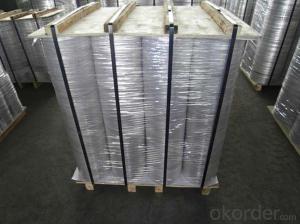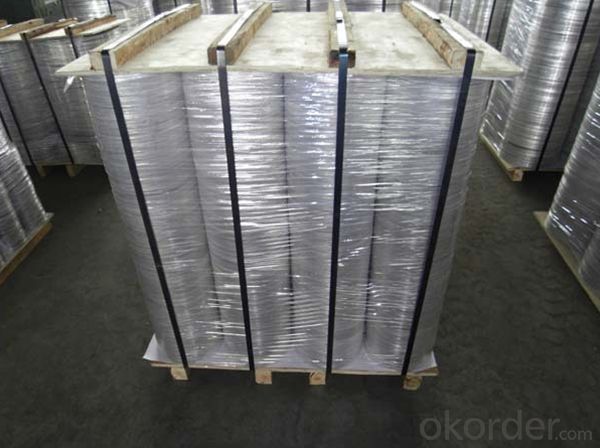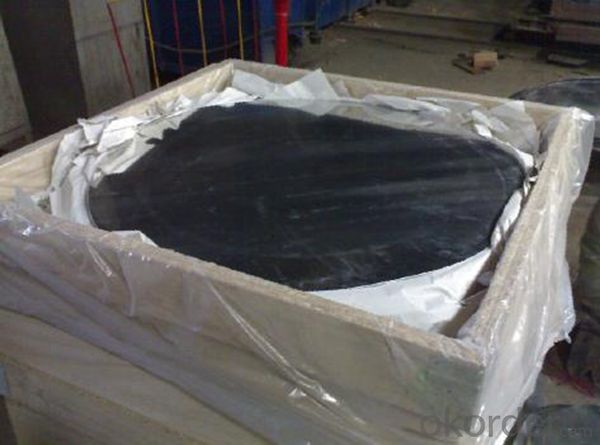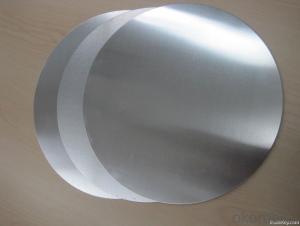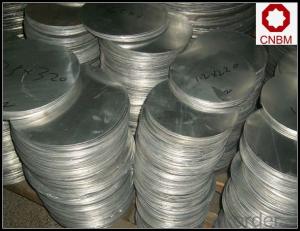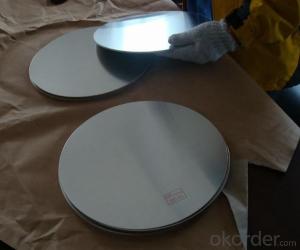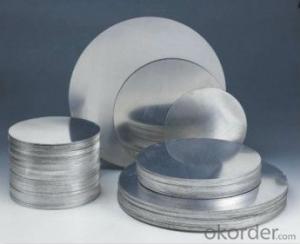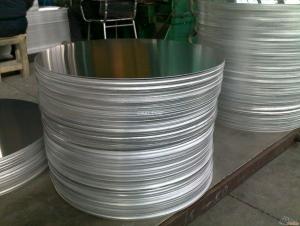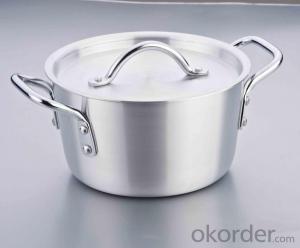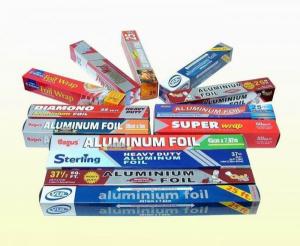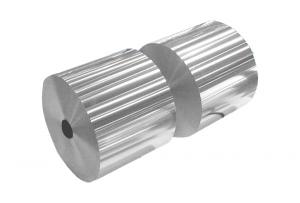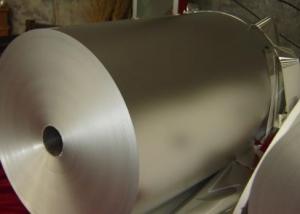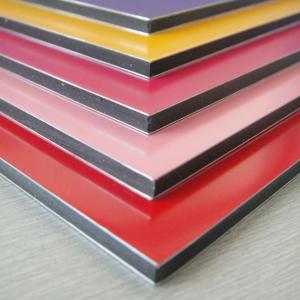Aluminum CC and DC Deep Drawing Circles for Cookware - Manufacturer in China
- Loading Port:
- Shanghai
- Payment Terms:
- TT OR LC
- Min Order Qty:
- 5 m.t.
- Supply Capability:
- 100000 m.t./month
OKorder Service Pledge
OKorder Financial Service
You Might Also Like
Specification
1. Specification of CC and DC Deep Drawing Aluminum Circles Manufacturer in China for Cookware
Alloy | AA1050,AA1060, AA1070, AA1100 |
Temper: | H12, H14, H16, H18, H22, H24, H26, H32,HO, F |
Thickness: | 0.10-500mm |
Width: | 10mm- 2200mm |
Standard: | GB/T3880-2006, ASTM, ISO, EU standard |
Special Specification is available on customer’s requirement | |
2. Application of CC and DC Deep Drawing Aluminum Circles Manufacturer in China for Cookware
wall cladding, ceilings, bathrooms, kitchens and balconies, shutters, doors,windows…
3. Feature of CC and DC Deep Drawing Aluminum Circles Manufacturer in China for Cookware
Surface Quality :
Be free from Oil Stain, Dent, Inclusion, Scratches, Stain, Oxide Decoration, Breaks, Corrosion, Roll Marks, Dirt Streaks and other defect which will interfere with use,
Mochenical Property:
Chemical Composite and Mechanical Property
4. Certificate:
SGS and ROHS(if client request, paid by client), MTC(plant provided), Certificate of Origin(FORM A, FORM E, CO), Bureau Veritas and SGS (if client request, paid by client), CIQS certificate
5. Image of CC and DC Deep Drawing Aluminum Circles Manufacturer in China for Cookware
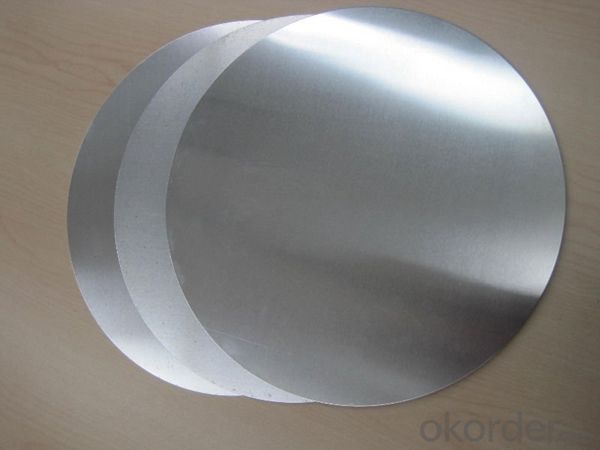
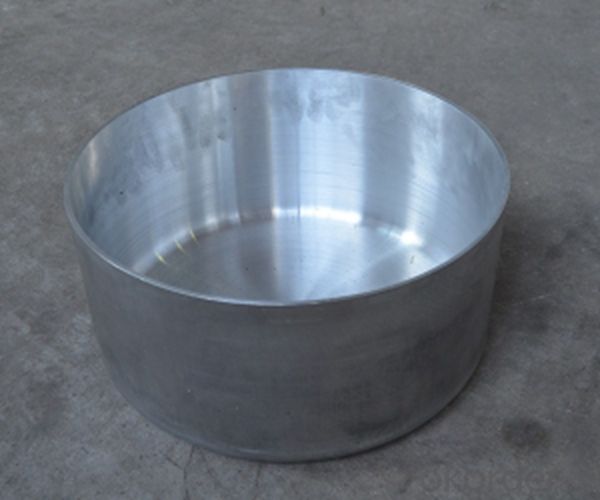
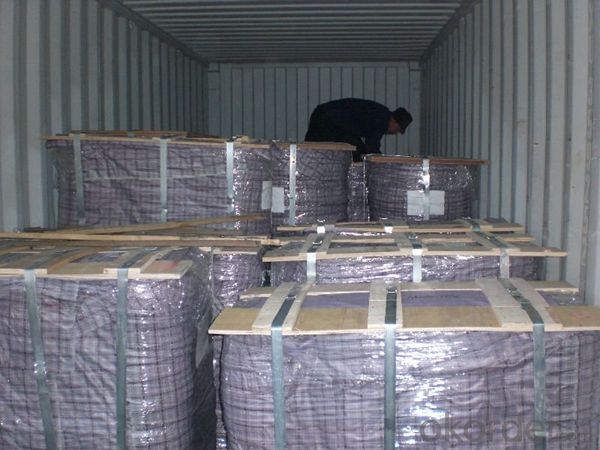
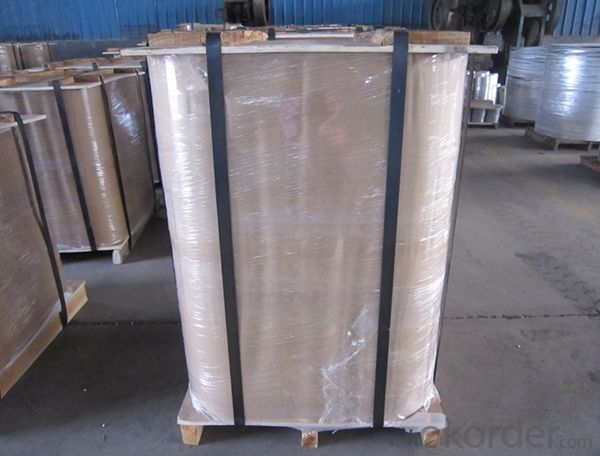
6. Package and shipping of CC and DC Deep Drawing Aluminum Circles Manufacturer in China for Cookware
First, plastic cloth with drying agent inside; Second, Pearl Wool; Third, wooden cases with dry agent, fumigation wooden pallets, aluminum surface could cover blue PVC film
7. FAQ
Question 1: What is your MOQ?
We accept one ton per type for an order. But the detail we could negotiate.
Question 2: What is your normal terms of payment?
We always trade with you by T/T. But we also accept the L/C as you require.
Question 3: How many kinds of the surface treatment we can choose?
You could choose different color of powder coated. Anodized of black. matte silver, nature, champagne, bronze color. Mill finished. Wooden finished and printed.etc.
Question 4: Can you supply OEM services?
We offer OEM services for 17 years.
Question 5: How many days for opening the mould?
Normally about 10 days.According to the difficulty of your drawing.
Question 6: Can i choose the package what i want?
Yes, of course. We offer various kinds of package.e.g.PE foam. Shrink film. Wrapping paper.
But we would give you professional suggestion of package.
- Q: This question asks for the common uses of aluminum in everyday life.
- <p>Aluminum is widely used in daily life due to its lightweight, corrosion resistance, and affordability. It's found in beverage cans, food packaging, and cookware. Aluminum is also used in construction for window frames, doors, and roofing. In transportation, it's utilized in the manufacturing of vehicles, aircraft, and ships due to its strength-to-weight ratio. Additionally, it's present in electronic devices, such as smartphones and laptops, for casings and heat sinks. Other applications include electrical wiring, sports equipment, and everyday items like foil and aluminum foil containers.</p>
- Q: This question asks about the energy consumption involved in the manufacturing process of an aluminum can.
- <p>The energy required to process and produce an aluminum can varies based on factors like production scale and technology used. On average, it takes about 70-90 kilowatt-hours (kWh) of energy to produce a single aluminum can. This includes the energy for mining bauxite, refining it into alumina, smelting it into aluminum, and finally, manufacturing the can. The energy consumption is significantly lower compared to producing cans from other materials like steel or plastic, which makes aluminum cans more energy-efficient.</p>
- Q: Is aluminum a suitable material for manufacturing bicycles and other lightweight vehicles?
- <p>Yes, aluminum is a popular material for making bicycles and other lightweight vehicles due to its high strength-to-weight ratio. It is lightweight, durable, and resistant to corrosion, which makes it an excellent choice for components that need to be strong yet not add excessive weight. Aluminum frames are commonly used in bicycles because they offer a good balance between weight, stiffness, and cost. Additionally, aluminum is widely used in the manufacturing of other lightweight vehicles such as electric scooters, small cars, and even aircraft due to its favorable properties.</p>
- Q: What are some important safety measures to take when handling or working with aluminum?
- <p>When working with aluminum, it's crucial to take several safety precautions. Always wear appropriate personal protective equipment (PPE), including safety glasses, gloves, and a dust mask to prevent inhalation of aluminum dust. Ensure good ventilation to avoid build-up of fumes, especially during welding or cutting processes. Use proper tools designed for aluminum to prevent sparks and overheating. Be aware of the fire hazard; aluminum can burn at high temperatures, so have fire extinguishers readily available. Finally, be cautious with chemicals used in aluminum processing, as they can be harmful; always follow the manufacturer's safety instructions.</p>
- Q: Is it safe and effective to use aluminum foil for wrapping food items in a freezer?
- <p>Yes, you can use aluminum foil to wrap food in the freezer. Aluminum foil is a good insulator and can help protect food from freezer burn. It also prevents cross-contamination and keeps odors from affecting other foods. Ensure the foil is tightly wrapped around the food to maintain freshness and quality. However, for long-term storage, it's recommended to use airtight containers or freezer-safe plastic bags in addition to or instead of foil, as they can provide better protection against freezer burn and moisture loss.</p>
- Q: This question asks about the process of producing aluminum, a common metal known for its lightweight and corrosion resistance.
- <p>Aluminum is made through a process called electrolysis. The primary source of aluminum is bauxite ore, which is first refined to produce aluminum oxide. This aluminum oxide is then dissolved in a molten cryolite bath and subjected to electrolysis. A large electric current is passed through the bath, causing the aluminum oxide to break down into aluminum metal and oxygen gas. The aluminum metal sinks to the bottom of the cell and is then tapped off and further processed. This process, known as the Hall-H茅roult process, is the predominant method for producing aluminum on an industrial scale.</p>
- Q: This question asks for examples of how recycled aluminum can be utilized.
- <p>Recycled aluminum has numerous applications, including the manufacturing of beverage cans, automotive parts, construction materials, and electronic components. It is also used in the production of aluminum foil, packaging materials, and various household items. Recycled aluminum is valued for its durability, lightweight properties, and energy efficiency in production, making it an environmentally friendly choice for many industries.</p>
- Q: What are the positive environmental impacts associated with the use of aluminum?
- <p>Aluminum offers several environmental benefits. It is highly recyclable, which means it can be reused multiple times without losing its properties, reducing the need for raw materials and the energy required for extraction and processing. Aluminum is also lightweight, which can reduce fuel consumption and emissions in transportation. Additionally, aluminum is a good conductor of heat and electricity, making it energy-efficient in various applications such as insulation and electrical wiring. Its durability and resistance to corrosion mean it lasts longer, reducing waste and the need for frequent replacements.</p>
- Q: This question asks about the consequences of corrosion on aluminum, including how it affects the material's properties and performance.
- <p>Corrosion on aluminum can lead to a loss of structural integrity, reduced strength, and increased brittleness. It can cause pitting, which is localized corrosion that leads to the formation of small holes or cavities on the surface. Over time, this can lead to material failure. Corrosion can also alter the appearance of aluminum, causing discoloration and a rough texture. In extreme cases, it can lead to the complete degradation of the aluminum, resulting in the loss of the material's functionality. Proper maintenance, such as applying protective coatings or using corrosion-resistant aluminum alloys, can mitigate these effects.</p>
- Q: Is it safe and effective to use aluminum foil for wrapping food items in a refrigerator or freezer?
- <p>Yes, you can use aluminum foil to wrap food in a refrigerator or freezer. Aluminum foil is a good insulator and can help keep food fresh by preventing freezer burn and moisture loss. It also protects food from absorbing odors. However, it's important to ensure the foil is tightly wrapped around the food to maintain its effectiveness. Additionally, avoid using aluminum foil with acidic foods as it can react with them, potentially causing a metallic taste.</p>
Send your message to us
Aluminum CC and DC Deep Drawing Circles for Cookware - Manufacturer in China
- Loading Port:
- Shanghai
- Payment Terms:
- TT OR LC
- Min Order Qty:
- 5 m.t.
- Supply Capability:
- 100000 m.t./month
OKorder Service Pledge
OKorder Financial Service
Similar products
Hot products
Hot Searches
